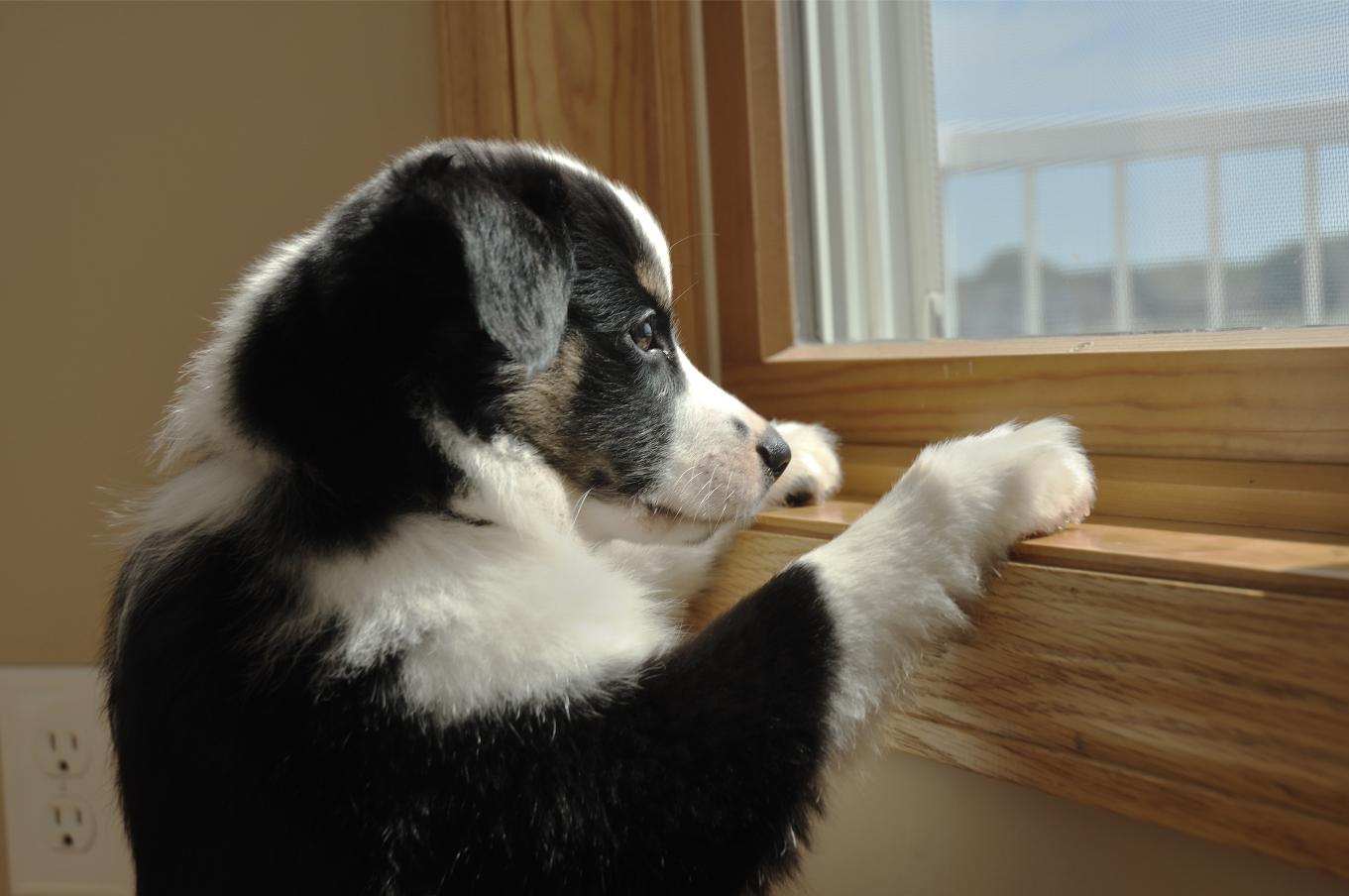Blog
How to Help Your Dog Cope with Separation Anxiety

So many dogs suffer from separation anxiety. You are their whole world, and when you leave, it falls apart—even if just for ten minutes. This is not only stressful for the dog, but also you, the owner. Learn how to manage separation anxiety in dogs from your pet experts at South Seminole Animal Hospital.
Recognizing Separation Anxiety in Dogs
Us humans aren’t always as readily able to speak dog as we would like to be. Would you know if your dog was experiencing anxiety? The signs can present very differently from animal to animal, and it isn’t always totally obvious.
You should consider that your pet might have separation anxiety if they:
- Bark or whine when you leave
- Urinate or defecate in the house when you are gone
- Destroy items or property
- Salivate excessively
- Panting a lot when you leave
- Refuse to eat while you are gone
- Avoid going in their crate
- Pace or act agitated
- Attempt to escape from their crate, enclosure, or room
Typically, these symptoms will be most noticeable when you are physically leaving the house or even a room within the home. Some of the above mentioned symptoms could also indicate other problems. Having regular exams with your pet’s trusted doctor is important for their overall well-being as they can determine the root of these behaviors . Contact us if you’d like to establish your pet with our team of knowledgeable veterinarians at South Seminole Animal Hospital.
How to Treat Separation Anxiety in Dogs
If you think that your pet may suffer from separation anxiety, it is important to act. Untreated, anxiety can worsen and your pet can seriously harm themselves or your property.
There is no quick solution to fix the problem. Instead, your family and veterinarian will need to work together to help your dog.
Important steps include:
- Start when pets are young: If you are fortunate enough to have your pet as a puppy, you have a golden opportunity to expose them to an array of sites, sounds, and routines in a positive manner. Get them accustomed to having their paws and teeth touched. Show your dog the vacuum cleaner and hair dryer are routine noises and not scary. Consider training them to crate on command and when you are away. Puppies are most impressionable from 8-16 weeks and using positive reinforcement to build confidence at this time sets your family up for success.
- Building confidence: Often pets bond very strongly to people when they lack self confidence or are fearful of the outside world. Work to help your dog be comfortable with you leaving their sight, even for just a few seconds. Training sessions with different people and a consistent schedule is helpful.
- Creating a safe space: A crate or other space in your home where your dog feels safe is important. Use things like bedding, pheromones, and toys to make it special. Allow free access to the crate so they voluntarily utilize the space without worry.
- Enriching your pet’s environment: Putting a little effort into increasing your pet’s exercise and mental stimulation can be very helpful. Consider having a dog walker come into your home during the day, add a daily training session to your pet’s schedule, or enroll in an obedience class. Additionally, there are an array of interactive toys that can entertain them when you are away and can be a great tool.
- Outside help: Working with a knowledgeable, positive reinforcement trainer can really help provide great techniques to implement with pets having a more difficult time. Sometimes, pet’s need prescribed anti-anxiety medication to break their cycle of anxiety. Professional help, when used in conjunction with other techniques, can resolve issues with even the most difficult patients.
Separation anxiety can be a tough problem, but we are here to help. If you think that your pet might be dealing with this common issue, please schedule an appointment to meet with our experienced veterinary team. We want your pup to live their best life, and are happy to help however we can.
